SSCORRE!
Saint Sophia Cathedral
Online Resources for our Religious Edification
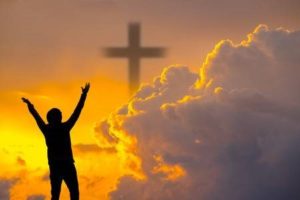
Topic of the Week –
Confessing and Passing Down the Orthodox Faith
“We are all responsible for the Church, and not only the bishops, for the Church is not someone else’s private property… and the faithful people have for centuries been generally recognized as the guardians of Orthodoxy.” Archpriest Theodore Zisis
How are we, the faithful, as the guardians of Orthodoxy, responsible for the Church?
“…We stand on sure ground when we follow the Holy Fathers and do not move the boundaries that they have set. The expressions “Following after our Holy Fathers” and “Not withdrawing the boundaries that our Fathers have set” are signposts for a steady course of spiritual advance and a guardrail for [remaining within] the Orthodox faith and way of life….”
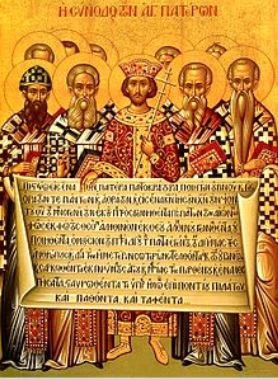
Icon depicting Holy Fathers of the First Ecumenical Council with the Nicene Creed
Adult/Family:
- “We should be afraid. Afraid of what? While holding in our hands this precious treasure [Orthodoxy] – just like a child when its mother gives it a gold coin, and the child takes it into his hands and is careful, so as not to lose it, that is how we should hold on tight to the treasure we were given from previous generations. We should be afraid that maybe one generation may pass on to the next generation something less than what it received. Because if our generation, out of the 100 precious gems, passes down to the next generation 99 gemstones, the next generation will pass down 98, the next generation will pass down 97, the next generation… where will we end up?
- Do you know where we will end up? Removing one gem after the other, from the crown of Orthodoxy, slowly, slowly, one generation after the other, taking parts off Orthodoxy, we will have as a consequence – we will reach a distant generation that will be named Orthodox, but will not be Orthodox.
- We should be afraid that maybe one generation will betray [Orthodoxy]. We should be afraid that maybe one generation will pass down something less than what it received or pass down something totally different from what it received. We should be afraid of acquiring a false spirit within our Church.” Metropolitan Augostinos of Florina
Consider reading Orthodoxy and the Religion of the Future by Fr. Seraphim Rose
- “The Clarity of a Patristic Mind…how the acquisition of the Patristic mind enables one to see what others cannot: An Orthodox mind stands at the point where all roads cross. He carefully looks down each road and, from his unique vantage point, observes the conditions, dangers, uses and ultimate destination of each road. He examines each road from a Patristic viewpoint as his personal convictions come into actual, not hypothetical, contact with the surrounding culture.”

Preschool/Elementary:
As Orthodox Christians, we believe in certain things about God and Jesus Christ that the rest of the world does not. These ideas are the basis for our entire life – everything we say and do. Some of those ideas are listed in what is called the Nicene Creed, which is a statement of beliefs that we say every week in Liturgy. We say it out loud to declare what our beliefs are in front of God, and as a constant reminder to ourselves of what we believe.
You can learn more about it with this book below:
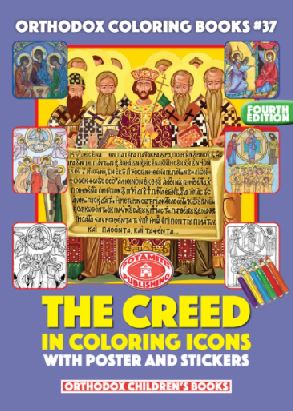
One of the ways we confess our faith is during the Liturgy when we recite the Nicene Creed. Do you know what the words are by heart? Do you know what they mean?
- “The word ‘creed’ is derived from the Latin word credo meaning ‘I believe.’ What you believe and base your life on is your creed. And everyone -even the atheist – has a creed, because everyone bases his life on something…
- The early creeds…were written to be ‘signposts against heresy.’ They were written to combat false teachings. As a matter of fact, it was the great heretics who prompted the writing of the creeds, which were written as replies to the false teachings of those in the early church who tried to change the truths of Christ…
- In the 4th Century the Church decided to compose one uniform, official creed for the whole church. The results was the Nicene Creed written by the First and Second Ecumenical Councils. The fact that the Creed was written by the Church assembled in Ecumenical Council demonstrates that the Creed is not one man’s opinion (‘I’m entitled to my belief and you to yours’).. [it] is the whole church expressing its faith under the guidance of the Holy Spirit.
- …we cannot remain silent about what God has done for us. We must be able to express our faith however inadequately. This is what the church has tried to do through the Creed. We need to know what to believe and in Whom we believe if we are to live as Christians…”
Learn all about the Nicene Creed by reading The Nicene Creed for Young People with Study Guide
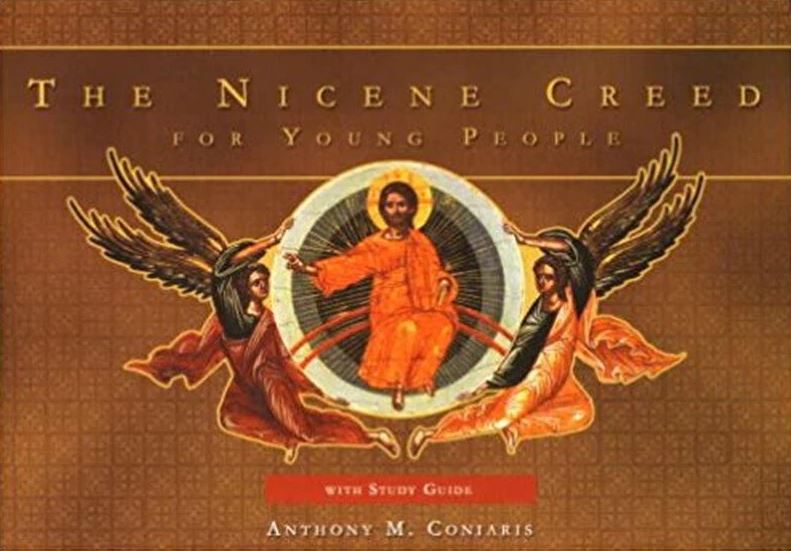
High School
“…the phrase “in my opinion” has no place in Orthodox theology, because it is not about what we think, but about what the Holy Spirit has revealed to the Holy Fathers. The Church has entrusted us with a great inheritance, the Orthodox Faith, and we are obligated, as the Seventh Ecumenical Council decreed, to keep unchanged all the ecclesiastical traditions handed down to us, whether in writing or verbally.
Obedience to the Tradition handed down to us, whether written, verbal, or pictorial, is humility. Humility is perfect acceptance of all that the Holy Spirit does through the Church. Humility is remaining faithful to the Church, no matter how many theologians, professors, or even hierarchs teach something contrary to the Tradition handed down to us. For the Church functions in accordance with Christ’s commandments. Christ is the same yesterday, today, and tomorrow, and what the Church taught yesterday will still be true tomorrow, because what the Church teaches is the Truth made flesh, the Truth made Man. And what the God-man teaches us is to follow Him (John 1:43).”
Excerpted from The Sweetness of Grace; Stories of Christian Trial and Victory p 33, Constantina Palmer
What are the dangers of not following the Holy Fathers and traditions of the church? We are liable to turn Orthodoxy, which has the grace of the Holy Spirit and leads us to eternal salvation, into something that is NOT the true faith! Instead we might be inclined to follow teachings our entire lives that will lead us away from the one true God instead of towards Him.
We, as the Orthodox faithful, need to understand what the Holy Fathers and Church traditions teach in order that we are not carried away by the heresies of the current age regardless of who is saying them. How well do you know what they have handed down to us?
Here are 7 Differences, a short discussion on Grace and some Quick Facts.
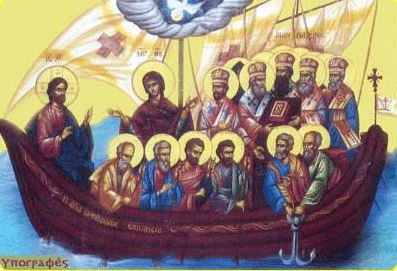
A Message from Maria Spanos
I am passionate about our Orthodox Christian faith and seek to help others learn as much as they can about it. My purpose here is to share online resources that help strengthen our relationship with Christ and bind us closer to His Church. I believe they are invaluable in learning about our precious Orthodox Tradition, and are a great aid for teaching family members, friends and others about Orthodoxy. ~Maria
Two of my favorite quotes:
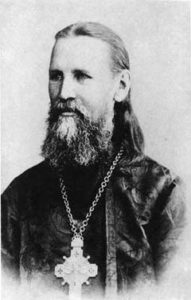 “A true Christian behaves in this life so that it may be a preparation for the future one and not only a life here below. In his actions, he does not think what will be said of him here but of what will be said there in heaven; he represents to himself that he is always in the presence of God, of the angels and all the saints, and remembers that someday they will bear witness of his thoughts, words, and deeds.” — Saint John of Kronstadt
“A true Christian behaves in this life so that it may be a preparation for the future one and not only a life here below. In his actions, he does not think what will be said of him here but of what will be said there in heaven; he represents to himself that he is always in the presence of God, of the angels and all the saints, and remembers that someday they will bear witness of his thoughts, words, and deeds.” — Saint John of Kronstadt
__________________________________________________________
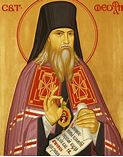
“Of all the holy works, the education of children is the most holy.”
— St. Theophan the Recluse






